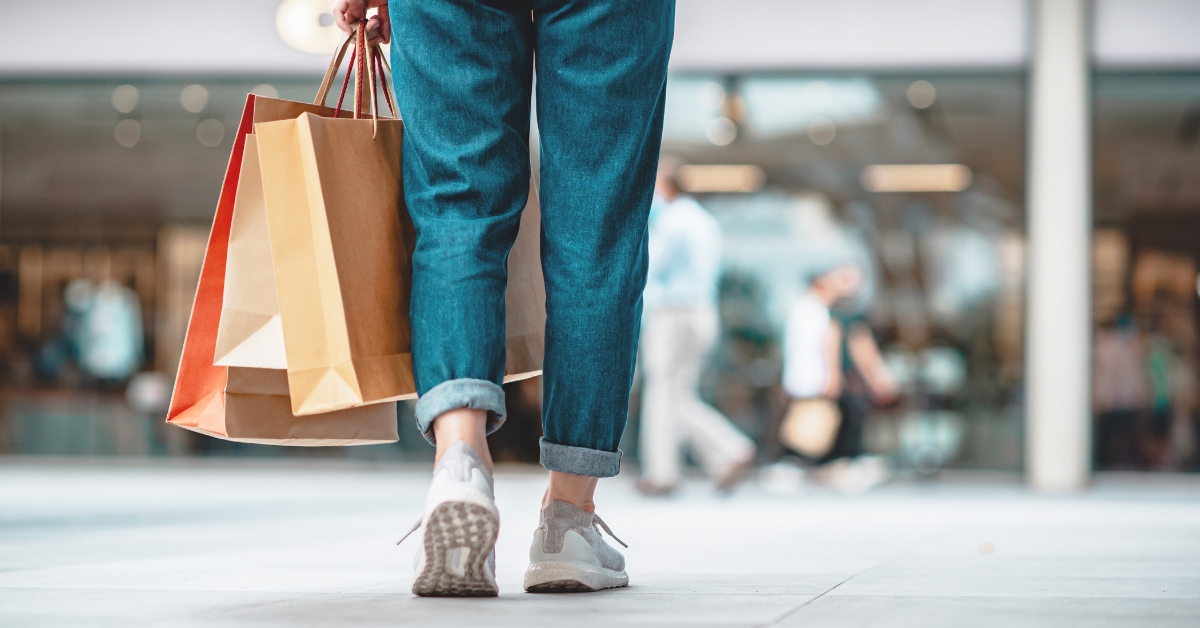Shops across Scotland are still struggling to attract customers as the retail sector seeks to recover from the impact of the coronavirus pandemic.
Figures published by the Scottish Retail Consortium (SRC) show that footfall in the country fell by 16.5% in July, 0.7 percentage points worse than June.
It is the third successive month where Scotland has had the weakest retail footfall figures in the UK, which saw an average decline of 14.2% in the same period.
The figures published by the SRC were compared to their pre-pandemic (2019) levels.
Shopping centres also find themselves in difficulty, with a decline in footfall of 19.2% in July in Scotland.
However, this latest figure did represent a slight uptick on June, where there was a decline of 19.9%.
Glasgow and Edinburgh both outperformed the national average, although both saw a fall from June.
In Scotland’s capital city, footfall fell to -13.5% and in Glasgow there was a fall to -13.6%.
Ewan MacDonald-Russell, Head of policy and external affairs at the Scottish Retail Consortium, indicated that both cities may expect a stronger performance in August with the full return of the festival in Edinburgh.
“Scottish retail locations continue to struggle to attract customers after recording a third successive month with the weakest retail footfall figures in the UK,” he said.
“Footfall across all locations fell to -16.5 percent compared to pre-pandemic trading – the worst figures since March.
“Edinburgh and Glasgow both outperformed the national average, albeit both cities fell back from June’s performance. Footfall in Edinburgh fell back to -13.5 percent, with Glasgow showing a fall to -13.6 percent.
“The fall in Edinburgh is particularly disappointing after a good performance in the previous month.
“Both Scotland’s largest cities will be hoping August attracts more visitors, especially in Edinburgh as the Festival fully returns. Shopping Centres continue to struggle, albeit a small improvement over last month’s performance.”
MacDonald-Russell also called on the UK and Scottish governments to ensure that action is taken to protect household incomes.
“As the year progresses there is little evidence Scottish consumers are close to returning to pre-pandemic shopping patterns,” he continued.
“That is an intense concern for high street retailers who now face higher costs than three years ago but have fewer customers coming in the door.
“With consumer confidence badly shaken by rising inflation and the prospect of mountainous energy bills in the Autumn both the UK and Scottish Governments need to urgently recognise the scale of the challenge facing the industry.
“That should then lead into action in the UK and Scottish Budgets later this year to protect household incomes, especially for the least affluent, whilst helping retailers to weather the economic storm.”
Scottish Conservative finance and economy spokeswoman Liz Smith underlined the need to encourage people back to high streets and town centres.
“This is now the third month in a row that Scotland’s shopper footfall has been lower than the rest of the UK. It is clear that we are lagging behind in our economic recovery from the pandemic,” said Smith.
“Scotland’s retail sector was badly hit during the pandemic, bearing the brunt of the SNP’s sluggish Covid support rollout and its dithering and delays over lifting restrictions.
“However, instead of now working to support the industry’s recovery from the pandemic, the SNP has once again taken its eye off the ball to pursue an unwanted and divisive second independence referendum.”
Smith added: “The SNP cannot continue to ignore our economy.
“We need to encourage people back to our high streets and town centres, and make it easier for employees to return to the office by scrapping damaging policies, such as the workplace parking levy.
“The SNP must urgently start listening to businesses and delivering the support they need – or jobs and livelihoods will be lost as a result of our sluggish recovery.”
A Scottish Government spokesperson stated that the biggest threat to retail recovery is the cost of living crisis.
“Our new retail strategy sets out how we will work with business and trade unions to deliver a strong, prosperous and vibrant retail sector, and contains specific actions to strengthen retail’s contribution to the economic and social success of our local communities,” they said.
“More than £4.7bn in support has been provided by the Scottish Government to businesses since the beginning of the pandemic, including around £1.6bn in rates relief.
“The lowest non-domestic property rates in the UK is also being delivered for the fourth year in a row for over 95% of non-domestic properties and we are offering the UK’s most generous Small Business Bonus Scheme which takes over 111,000 properties out of rates altogether, as of June 1, 2021.”
They continued: “This is in addition to the action we are taking to support our town and city centres, and help retailers and communities recover – not least through our £80m Covid Economic Recovery Fund, our £6m City Centre Recovery Fund, and the Town Centre Action Plan.
“However, the biggest threat to retail recovery and consumers having income to spend is the cost of living crisis and we will continue to press UK Government to do more to support people and businesses during what are very tough times, exacerbated by the impact of Brexit and the pandemic.”
Follow STV News on WhatsApp
Scan the QR code on your mobile device for all the latest news from around the country


 iStock
iStock

























